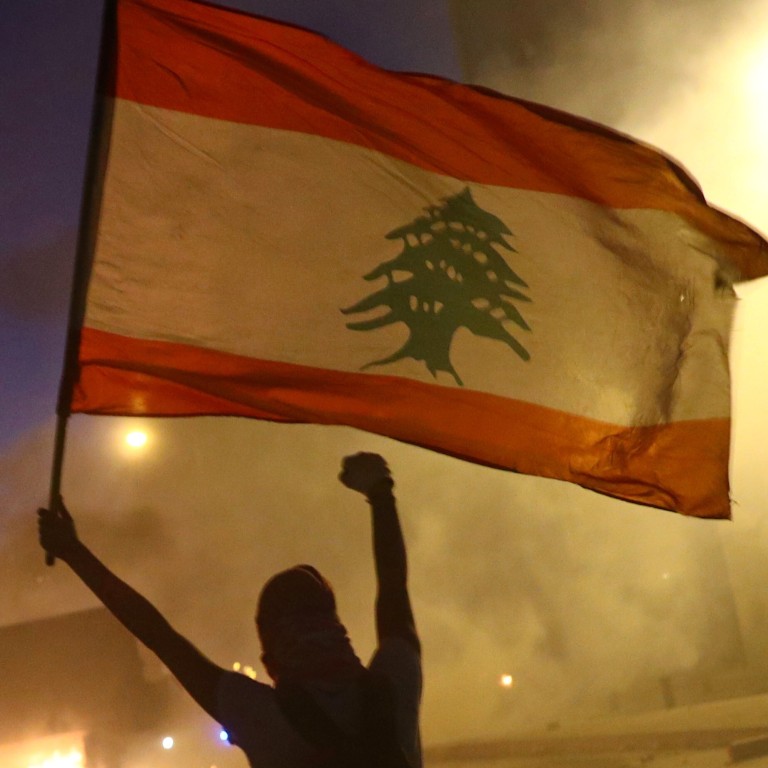
Shots, tear gas and flames in Beirut as thousands protest over Lebanon’s handling of blast
- PM proposes early elections, while demonstrators storm ministry buildings and burn president’s portrait
- Policeman falls into lift shaft and dies while running from protesters
The protesters said their politicians should resign and be punished for negligence they say led to Tuesday’s blast, the biggest ever to hit Beirut, that killed 158 people and injured more than 6,000, compounding months of political and economic meltdown.
A policeman was killed during the clashes, a spokesman said. A policeman at the scene said the officer died when he fell into a lift shaft in a nearby building after being chased by protesters.
The Red Cross said it had treated 117 people for injuries on the scene while another 55 were taken to hospital. Police officers wounded by stones were treated by ambulance workers. A fire broke out in central Martyrs’ Square.

02:36
Protesters angry about Beirut blasts call on visiting French leader to push for reforms in Lebanon
Dozens of protesters broke into the foreign ministry where they burned a portrait of President Michel Aoun, representative for many of a political class that has ruled Lebanon for decades and that they say is to blame for its current mess.
“We are staying here. We call on the Lebanese people to occupy all the ministries,” a demonstrator said by megaphone.
About 10,000 people gathered in Martyrs’ Square, some throwing stones. Police fired tear gas when some protesters tried to break through the barrier blocking a street leading to parliament.
Police confirmed shots and rubber bullets had been fired. It was not immediately clear who fired the shots. Riot police shot dozens of tear gas canisters at protesters, who hit back with firecrackers and stones.
Lebanon explosion: alarm raised over chemicals at least 10 times before blast
Television footage showed protesters also breaking into the energy and economy ministries.
They chanted “the people want the fall of the regime”, reprising a popular chant from the Arab spring uprisings of 2011. They held posters saying “Leave, you are all killers”.
The US Embassy in Beirut said the US government supported the demonstrators’ right to peaceful protest and urged all involved to refrain from violence.
The embassy also said in a tweet that the Lebanese people “deserved leaders who listen to them and change course to respond to popular demands for transparency and accountability”.
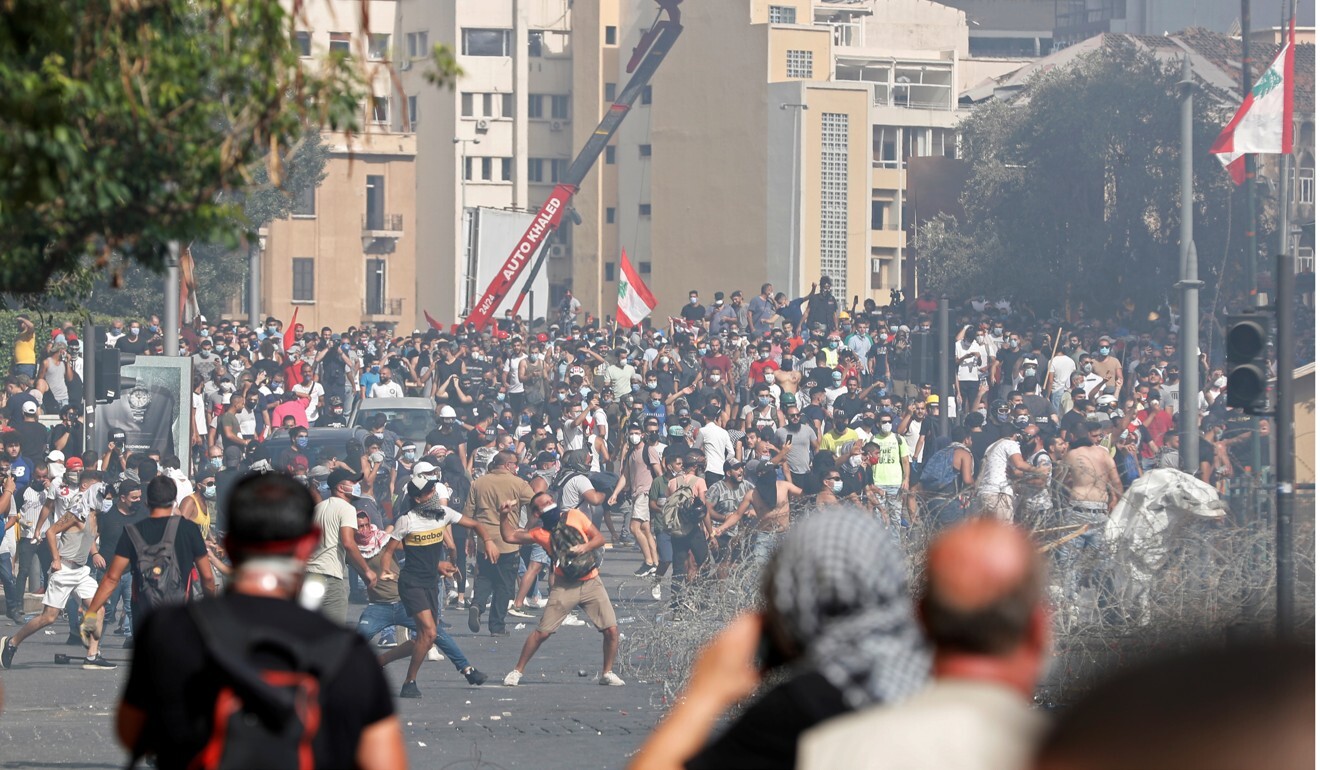
Prime Minister Hassan Diab said the only way out was early parliamentary elections.
The protests were the biggest since October when thousands of people took to the streets in protest against corruption, bad governance and mismanagement.
“You have no conscience, you have no morality. Go home! Leave! Resign, Enough is enough,” shouted one of the protesters.
“What else do you want? You brought us poverty, death and destruction,” said another.
“Resign or hang,” said one banner.
Soldiers in vehicles mounted with machine guns patrolled the area amid the clashes. Ambulances rushed to the scene. One teenager fainted after being overcome by tear gas.
“Really, the army is here? Are you here to shoot us? Join us and we can fight the government together,” a woman yelled.
Tuesday’s blast was the biggest in Beirut’s history. Twenty-one people were still reported as missing from the explosion which destroyed a large swathe of the city and caused collective losses estimated at US$15 billion.
The government has promised to hold those responsible to account. But few Lebanese are convinced. Some set up nooses on wooden frames as a warning to Lebanese leaders.
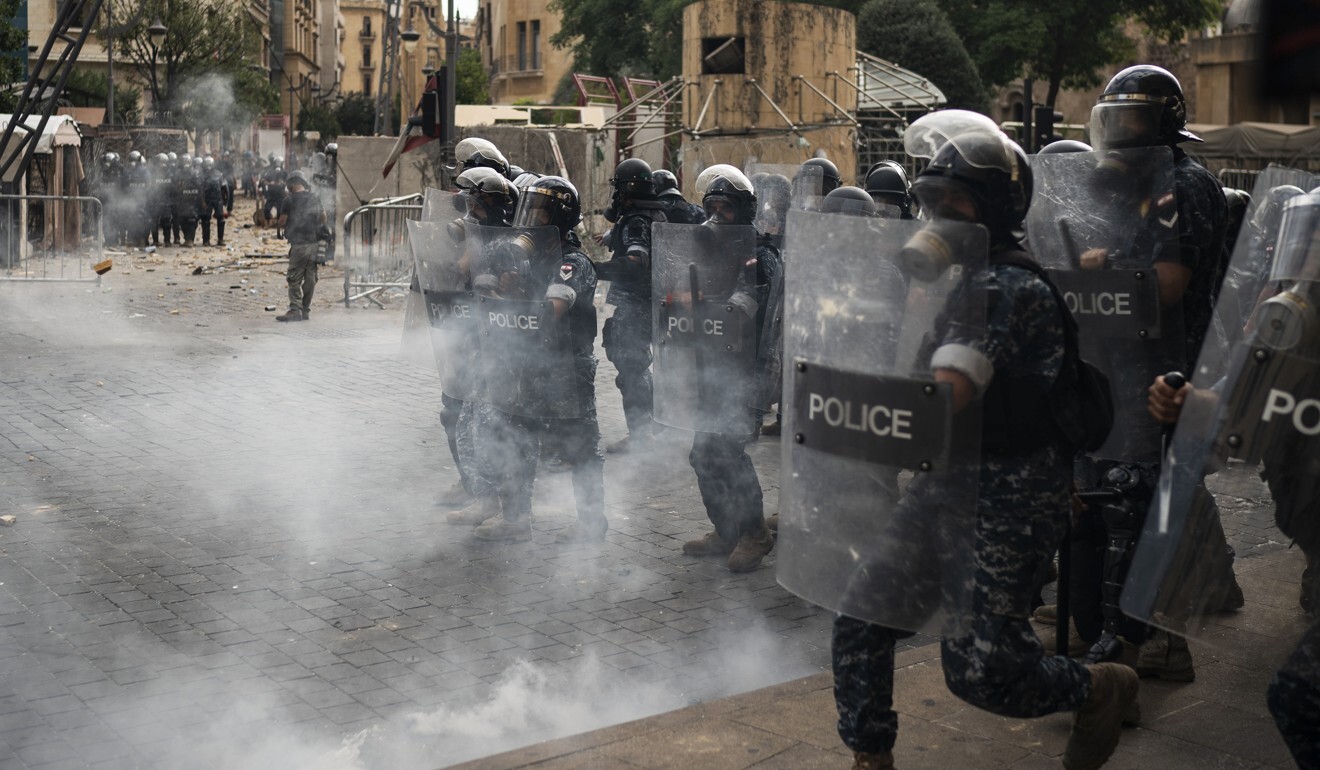
The prime minister and presidency have said 2,750 tonnes of highly explosive ammonium nitrate, which is used in making fertilisers and bombs, had been stored for six years without safety measures at the port warehouse.
The explosion hit a city still scarred by civil war and reeling from an economic meltdown and a surge in coronavirus infections. The blast rattled buildings on the Mediterranean island of Cyprus, about 100 miles (160km) away.
For many, the blast was a dreadful reminder of the 1975-1990 civil war that tore the nation apart and destroyed swathes of Beirut, much of which had since been rebuilt.
Rescuers comb Beirut port rubble as first arrests made over explosion
Some residents, struggling to clean up shattered homes, complain the government has let them down again.
“We have no trust in our government,” said university student Celine Dibo as she scrubbed blood off the walls of her shattered apartment building.
“I wish the United Nations would take over Lebanon.”
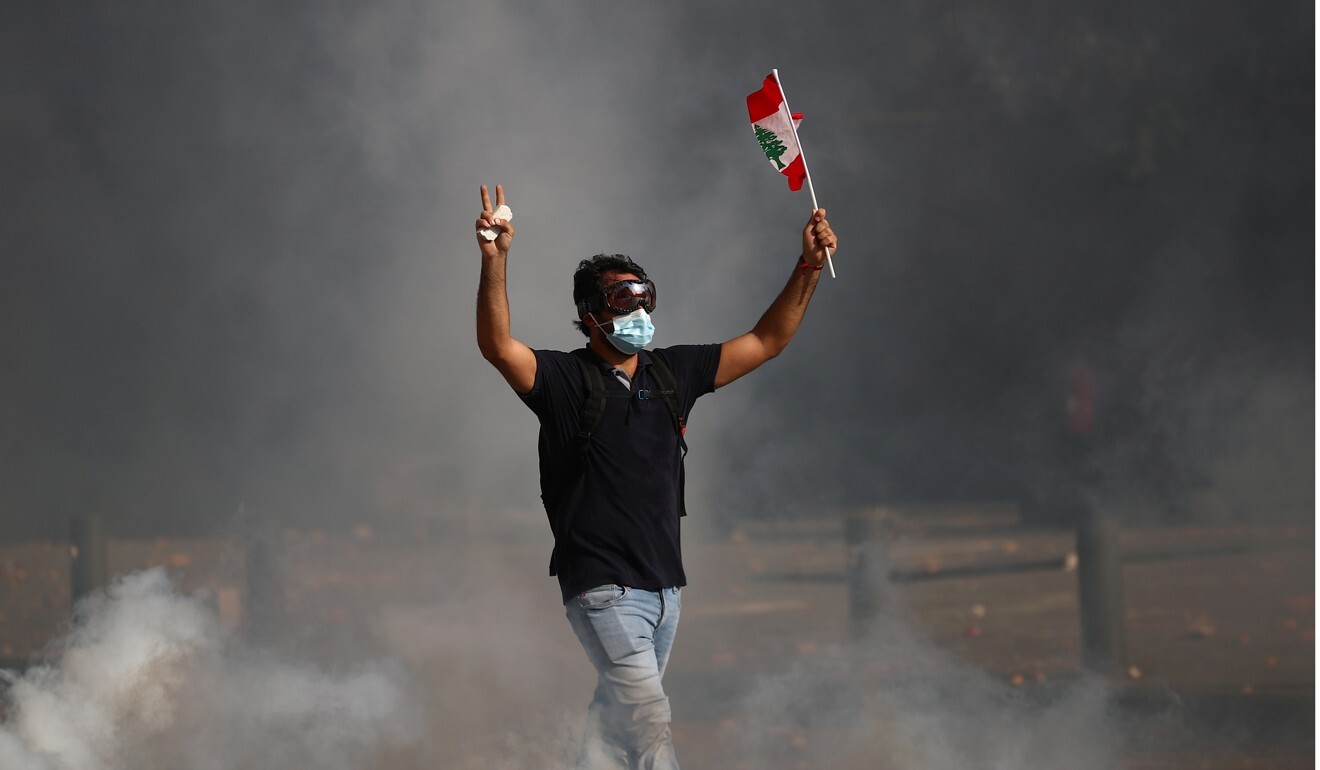
Many people denounced their leaders, saying none of them visited the site of the blast to comfort them or assess the damage while French President Emmanuel Macron flew from Paris and went straight to the scene to pay his tribute.
Lebanon’s Kataeb Party, a Christian group that opposes the government backed by the Iran-aligned Hezbollah, announced on Saturday the resignation of its three lawmakers from parliament.
Macron, who visited Beirut on Thursday, promised aid to rebuild the city would not fall into “corrupt hands”. He will host a donor conference for Lebanon via video-link on Sunday, his office said. US President Donald Trump said that he will take part.
Aoun said on Friday an investigation would examine whether it was caused by a bomb or other external interference. Aoun said the investigation would also weigh if the blast was due to negligence or an accident. Twenty people had been detained so far, he added.
In blast-hit Beirut, angry Lebanese urge France’s Macron to help oust regime
Some residents wondered how they would ever rebuild their lives.
Tearing up, Bilal Hassan used his bare hands to try to remove debris from his home. He has been sleeping on a dusty couch besides pieces of splintered glass.
When his three wounded teenage children ran for their lives they left blood stains on the staircase and walls.
“There is really nothing we can do. We can’t afford to rebuild and no one is helping us,” he said, standing beside a large teddy bear that was blown across his home, and a damaged photograph of him and his wife.
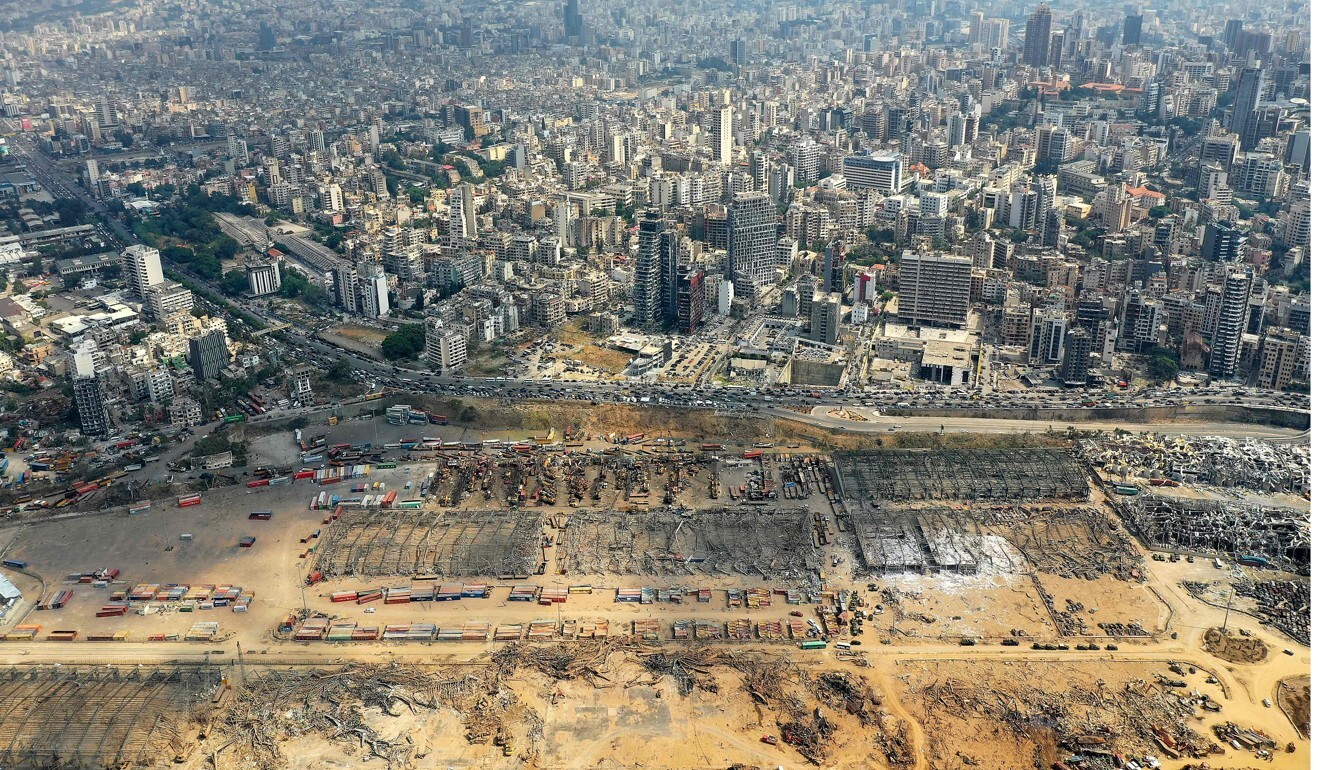
Bulldozers ploughed through the wreckage of mangled homes and long rows of flattened cars as soldiers stood by. Volunteers with shovels streamed through streets.
Danielle Chemaly said her charity organisation, whose headquarters was destroyed, had provided assistance to 70 families who were left homeless.
“We don’t know what we can do for families in the future,” she said.
Officials have said the blast could have caused losses amounting to US$15 billion. That is a bill that Lebanon cannot pay after already defaulting on a mountain of debt – exceeding 150 per cent of economic output – and with talks stalled on an IMF lifeline.
For ordinary Lebanese, the scale of destruction is overwhelming. Marita Abou Jawda was handing out bread and cheese to victims of the blast.
“Macron offered to help and our government has not done anything. It has always been like that,” she said. “After Macron visited I played the French national anthem all day in my car.”

